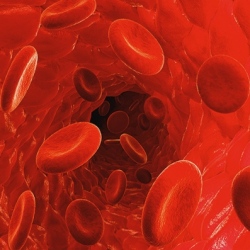
The timing of taking your blood pressure medicine could have a big impact on whether or not you develop type 2 diabetes. Specifically, the researchers found that taking blood pressure medications at bedtime rather than in the morning may cut the risk of developing type 2 diabetes by more than half.
People with high blood pressure tend to suffer from a phenomenon called “non-dipping,” in which their blood pressure does not substantially decrease during sleep as it does in healthy people, the researchers said in background information.
In an initial study, the investigators found that “non-dippers” tended to have an increased risk of developing type 2 diabetes, compared with people whose blood pressure decreased normally during sleep.
A follow-up clinical trial by the same research group revealed that taking high blood pressure medications right before bed helped lower a person’s sleeping blood pressure, and the risk of type 2 diabetes.
For every 14-point decrease in a person’s average sleeping systolic blood pressure, they experienced a 30 percent reduction in their risk of developing type 2 diabetes, said lead author Dr. Ramon Hermida. Systolic pressure is the top number in a blood pressure reading.
“The results from our prospective study indicate lowering asleep blood pressure could indeed be a significant method for reducing the risk of developing [type 2] diabetes,” said Hermida, who’s a professor of medicine at the University of Vigo in Spain.
So, how are these two very different diseases connected? Hormones such as adrenaline and angiotensin play a role in the development of both high blood pressure and type 2 diabetes, explained Dr. Zachary Bloomgarden, a clinical professor of medicine at the Mount Sinai Icahn School of Medicine in New York City.
A number of blood pressure medications specifically target angiotensin, a hormone that causes blood vessels to constrict and blood pressure to rise, Bloomgarden said. Angiotensin also contributes to increased glucose (sugar) release from the liver and decreased insulin sensitivity. These factors can lead to type 2 diabetes, he said.
Drugs that target angiotensin include angiotensin receptor blockers (ARBs), ACE inhibitors and beta blockers. All three classes of medication were associated with a reduced risk of type 2 diabetes when taken at bedtime, the researchers found.
“This could be a very important study, which would influence how we treat high blood pressure in people with diabetes and people at risk for diabetes,” Bloomgarden said. “These are some really interesting observations you can fit together into this idea that something’s particularly going on at night.”
